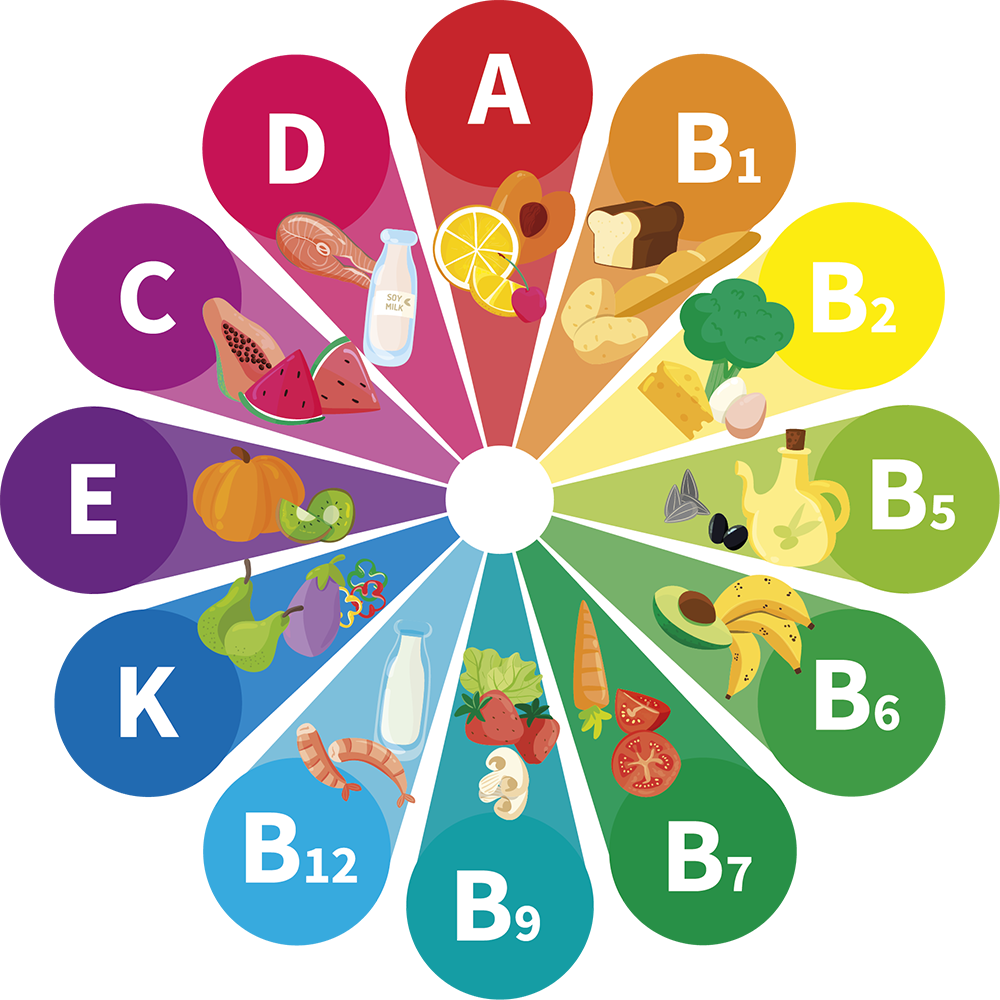
Vitamins for Children: Are They Necessary?
Vitamins, minerals and trace elements play a significant role in the normal functioning of the immune system. Key nutrients such as vitamin A, B-complex vitamins, vitamins C and D, zinc, iron and calcium provide substantial protection against viral infections.
Types of Vitamins
- Fat-soluble vitamins: A, D, E, and K. These are stored in the body.
- Water-soluble vitamins: B-complex vitamins (B1, B2, B3, B5, B6, B12), biotin, folic acid and vitamin C. Excess amounts are excreted in urine.
Does My Child Need Vitamin Supplements?
Parents often ask if their child needs vitamins to boost their immune system and prevent frequent illnesses. While vitamins are important, nothing can replace a diet rich in fruits and vegetables, which provides all the nutrients a child needs daily.
According to the American Academy of Pediatrics (AAP), healthy, normally growing children do not require vitamin supplements. However, supplements may be recommended in specific cases, such as:
- Children with chronic illnesses (e.g., cystic fibrosis or malabsorption syndromes).
- Children following vegan diets.
- Children with growth delays or developmental issues.
Should My Child Take Vitamin D in Winter?
The AAP recommends:
- Exclusively breastfed infants up to 6 months of age should receive 400 IU of vitamin D daily.
- Premature infants may also be prescribed vitamin D supplements, typically for their first year.
However, excessive vitamin D intake can lead to elevated calcium levels in the blood, potentially causing cardiac, kidney and gastrointestinal issues.
Key Points
- Vitamins should come from food. Children with a balanced diet usually don’t need supplements.
- Vitamins do not provide calories.
- Overconsumption of vitamins can cause toxicity and lead to various symptoms and complications, such as:
- Headaches, nausea and diarrhea (e.g., excessive vitamin C intake).
Tips
- Encourage a balanced diet rich in nutrients to meet your child’s vitamin needs naturally.
- Avoid excessive supplementation to prevent toxicity and adverse effects.
Note: This article provides general information. Always consult your paediatrician for personalized advice.
Written by Paediatrician Katerina Katsibardi, MP, PhD











